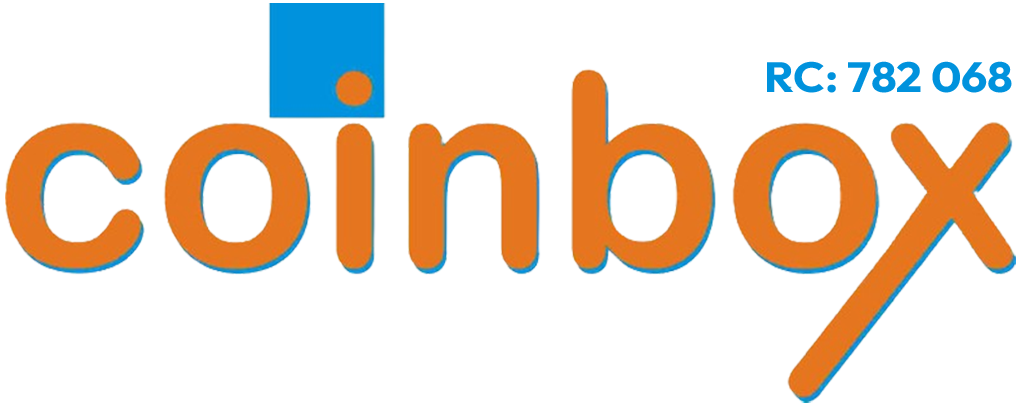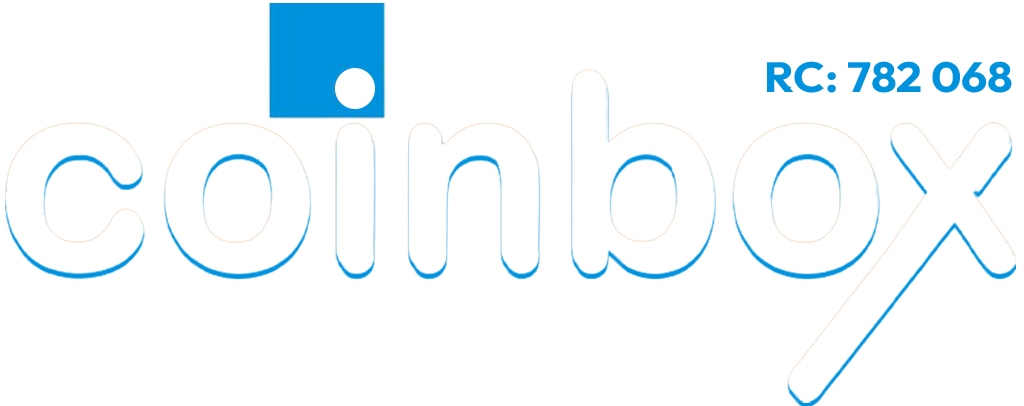How modern technologies are redefining your business model.

These three technologies—Quantum Computing, Nanoscience, and 6G—represent the next generation of capability in computation, materials, and connectivity. They are poised to collectively redefine what’s possible across every industry.
1. Quantum Computing ⚛️
What it is: A radically new form of computing that uses the principles of quantum mechanics (like superposition and entanglement) to solve problems currently intractable for even the world’s most powerful supercomputers.
- The Difference: Classical computers use bits (1 or 0); quantum computers use qubits, which can be 1, 0, or both simultaneously. This enables exponential increases in computational power for certain problem types.
- Business Impact:
- Optimization: Solve complex logistical problems (supply chain, fleet routing, financial portfolio risk) far more quickly.
- Drug & Material Discovery: Simulate molecular interactions with unprecedented accuracy, accelerating the development of new drugs, catalysts, and high-performance materials.
- Cybersecurity: While it poses a threat to current encryption (requiring a move to Post-Quantum Cryptography), it will also enable new, highly secure communication methods.
2. Nanoscience (Nanotechnology) 🔬
What it is: The study and manipulation of matter at the nanoscale (one billionth of a meter). This is the scale of atoms and molecules, where materials exhibit unique and powerful properties.
- The Difference: It’s about building from the bottom up, creating materials, devices, and systems with precise, customized functions by controlling their fundamental structure.
- Business Impact:
- Advanced Materials: Create lighter, stronger, more durable, and more energy-efficient materials for manufacturing, aerospace, and construction.
- Electronics: Enable smaller, faster, and more energy-efficient components, fueling everything from more advanced sensors to more stable qubits for quantum computing.
- Healthcare: Revolutionize diagnostics and drug delivery with nanobots or precisely engineered nanoparticles that target diseased cells.
3. 6G Wireless Technology 📡
What it is: The sixth generation of wireless communication, intended to succeed 5G. It will operate at higher frequency bands (Terahertz spectrum) and will be defined by its seamless integration with artificial intelligence and sensing capabilities.
- The Difference: Expected to deliver 100 to 1,000 times faster speeds than 5G, sub-millisecond latency, and truly ubiquitous, intelligent connectivity. It won’t just connect people; it will connect and integrate our digital and physical worlds.
- Business Impact:
- Real-Time Everything: Enable mission-critical applications like fully autonomous vehicles, sophisticated remote surgery, and truly immersive AR/VR experiences.
- Intelligent Infrastructure: Power smart cities, smart factories, and massive sensor networks by providing the necessary bandwidth and low latency for Edge Computing.
- Convergence: Provide the critical data backbone needed for quantum-enhanced AI and for deploying billions of new nanosensors globally.
The Strategic Takeaway
Individually, these technologies are transformational. Collectively, their convergence will create a revolution:
- Nanoscience will build the next-gen materials and sensors.
- 6G will provide the intelligent, low-latency communication backbone.
- Quantum Computing will provide the massive processing power to derive insights and optimized solutions from the explosion of data.
For business, this means the competitive advantage of the future will lie in early planning and strategic investment in the talent and infrastructure necessary to harness this powerful triad of innovation.
The advent of 6G and quantum computing is expected to revolutionize business models, enabling new opportunities for growth, innovation, and security. Here’s a comparison of projected business models with current ones:
How will it affect business models?
The convergence of Quantum Computing, Nanoscience, and 6G will not just refine existing business models; it will compel a shift in their fundamental definition, value proposition, and operating model.
Current business models are built on the constraints of classical computing, materials science, and network speed. These technologies shatter those constraints, forcing a transition from Linear Value Chains to Intelligent, Hyper-Optimized Ecosystems.
1. Shift in Value Proposition: From Products to Prescience 🔮
The primary impact will be on what a business sells. Value will shift from physical and digital assets to unprecedented speed and predictive power.
- Mass Customization at Scale: Nanoscience and Quantum simulation will allow the real-time, atom-level design of materials and compounds (drugs, batteries, catalysts). This will enable a business model centered on “On-Demand Material Creation” or “Molecular Design-as-a-Service” (MDaaS), replacing current high-cost, high-volume R&D models.
- Predictive Optimization: Quantum computing’s power to solve complex optimization problems exponentially faster will enable “Prescience-as-a-Service.” For logistics, finance, or manufacturing, the value won’t be in the tool (the software), but in the certainty of the optimal outcome—e.g., guaranteed lowest risk portfolio or zero-waste production routing.
- Real-Time Sensory Insight: 6G’s ultra-low latency, combined with nanosensors, will flood systems with real-time data from every corner of the operation. This enables a model where physical assets (e.g., factory machines, crops, human bodies) are managed as “Autonomous Digital Twins” that self-optimize in milliseconds.
2. Shift in Operating Model: From Ownership to Ecosystem Access 🌐
The operational core of businesses will move away from solely owned assets toward highly collaborative, network-dependent platforms.
- Compute-as-a-Utility: Few companies will own a quantum computer; most will access it via cloud-based Quantum-as-a-Service (QaaS). This shifts the operating model from Capital Expenditure (CapEx) on hardware to Operating Expenditure (OpEx) on high-level computational access, democratizing a formerly elite capability.
- Security Redefinition (The Quantum Threat): The theoretical ability of a future quantum computer to break current public-key encryption forces a critical and immediate shift in security business models. Companies that offer Quantum-Resistant Cryptography (QRC) solutions and 6G-enabled Quantum Key Distribution (QKD) will become central to all major enterprises, creating new security services markets.
- The Hyper-Agile Supply Chain: 6G allows a massive number of nanosensors to communicate instantaneously. This eliminates the latency buffer in current supply chains, making “just-in-time” a global, near-instantaneous reality. Business models focused on inventory holding or long-term fixed capacity will become obsolete, favoring those based on dynamic, flexible, on-demand resource brokering.
3. New Definition: The Business Model Canvas Must Expand
The Business Model Canvas (Key Resources, Key Activities, Value Proposition, etc.) will need new core components to reflect technological dependency.
| Old Constraint/Metric | New Core Element | Example of New Business Model |
| Data Latency | Real-Time Data Certainty (RTC) | 6G-enabled company selling Instant Feedback Loops to autonomous vehicles, charged per mile/transaction. |
| Material Limits | Molecular Engineering/Design | Pharma company selling licenses to their Quantum Molecular Simulation Platform, not just the resulting drug. |
| Computational Power | Quantum Problem Solvers | Consulting firm providing Quantum Algorithm Development to optimize client logistics, charged on efficiency gains. |
FOR NIGERIAN BUSINESSES
The opportunities for Nigerian businesses from the convergence of Quantum Computing, Nanoscience, and 6G are not about simply adopting foreign technology; they are about leapfrogging developmental stages and solving core national challenges with unparalleled efficiency.
The focus for Nigerian businesses must be on Service and Application Layers using cloud access, not on building foundational hardware.
Opportunities for Nigerian Businesses
- High-Value, Domestic Optimization Services (Quantum)
Nigeria is plagued by complex, large-scale logistical and financial problems that classical systems struggle with. This is a perfect fit for quantum optimization.
- Logistics & Supply Chain: Nigerian logistics is notoriously complex and inefficient. Startups can develop Quantum-Inspired Optimization Algorithms (running on cloud quantum resources) to:
- Optimize trucking routes in congested cities like Lagos to cut delivery time and fuel cost dramatically.
- Optimize the supply chain for critical imports (e.g., pharmaceuticals, manufacturing parts) to minimize storage and spoilage costs.
- Energy & Grid Management: With a struggling national power grid, businesses can offer solutions to:
- Use quantum modeling to instantly optimize power distribution across a fragmented grid, minimizing transmission losses and blackouts.
- Optimize the placement and management of decentralized renewable energy (solar, wind) for better integration.
- Fintech & Cybersecurity: Nigeria’s massive fintech industry faces constant fraud and security threats.
- Develop Post-Quantum Cryptography (PQC) consulting services to help financial institutions prepare their systems against future quantum attacks (a critical, near-term need).
- Use quantum-enhanced machine learning for real-time, highly accurate fraud and money laundering detection in massive transaction data sets.
- Precision Agriculture and Resource Management (Nanoscience + 6G)
Agriculture is the backbone of the economy, but suffers from low yields and resource waste.
- Smart Farming and Nanofarm Inputs: Utilize 6G’s high bandwidth to connect millions of low-cost, domestically produced Nanosensors placed in farmlands.
- Monitor soil moisture, nutrient levels, and disease indicators on a plant-by-plant basis in real-time.
- Develop or distribute nano-fertilizers that offer targeted, controlled release of nutrients, dramatically improving yield while reducing chemical usage and cost.
- Infrastructure Monitoring: Use 6G-connected Nanosensors to monitor aging national infrastructure.
- Detect real-time stress, corrosion, and leakage in oil & gas pipelines to combat theft and environmental damage.
- Digital Infrastructure Enablement (6G)
The imminent arrival of 6G opens up new service-provision models built on its core features (low latency, high capacity).
- Edge Computing Deployment: As 6G makes data transport instantaneous, businesses can establish local Edge Data Centers to process data close to the source (e.g., factory floors, hospitals, farms). This is crucial for enabling the real-time AI needed for autonomous operations.
- Immersive Services: Businesses can create high-fidelity, bandwidth-intensive services leveraging 6G: remote surgery/telemedicine, massive multiplayer online learning, and industrial AR/VR maintenance training.
How Nigerian Businesses Can Access These Opportunities
Accessing these opportunities requires a strategy of co-creation, cloud-first adoption, and focused talent development, rather than massive upfront capital investment in hardware.
| Strategic Action | Access Mechanism | Business Focus Area |
| 1. Cloud-First Quantum Access | Partnering & Subscriptions: Do not attempt to buy a quantum computer. Instead, focus on subscribing to major QaaS platforms (e.g., IBM Quantum Experience, Amazon Braket, Google Cloud). | Fintech, Logistics, Energy (Solving optimization problems) |
| 2. Talent & Skill Acquisition | Targeted Training & Collaboration: Sponsor employees to take global online courses (Qiskit, Cirq, etc.). Partner with local universities (e.g., Unilag, Covenant, ABU) to establish Quantum/Nano/6G research hubs focused on local problem sets. | All Sectors (Building the core capability) |
| 3. Focus on the “Nano-Stack” | Import Substitution & Local Manufacturing: Partner with material scientists and engineers to begin local development of cheap, rugged nanosensors for agriculture and infrastructure. Focus on the final product/service (data), not just the raw material. | Agriculture, Oil & Gas, Healthcare (Creating data from the physical world) |
| 4. Policy Advocacy & Standardization | Engage with Regulators (NCC): Proactively collaborate with the Nigerian Communications Commission (NCC) and relevant ministries to influence 6G spectrum allocation and Post-Quantum Cryptography standards (NIST). This secures an early-mover advantage. | Telecommunications, Security (Shaping the market environment) |
| 5. Hybrid Model Innovation | Integration of Classical and Next-Gen: Develop hybrid software models where the most complex part of a problem is offloaded to the quantum cloud, while data preparation and results validation are done on local high-performance classical computers. | All Sectors (Pragmatic, near-term deployment) |
Some notable Nigerian startups already working in this space include:
– QuantuMLabs: Developing quantum algorithms for financial modeling, cryptography, and artificial intelligence applications.
– NigerQubit: Focuses on quantum computing research and education, collaborating with local universities and international research institutions.
– AfricQubit: Developing quantum solutions to improve energy efficiency and enhance diagnostic capabilities in healthcare.
– Quantum Intelligence Solutions (QIS): Offers quantum consulting services to businesses across Nigeria.
– QuantumSoft Africa: Builds quantum software solutions for machine learning and data analytics.
Key sectors affected by these technologies
The convergence of Quantum Computing, Nanoscience, and 6G will profoundly affect any sector reliant on optimization, material properties, data security, and real-time connectivity.
The Five Key Sectors that will experience the most significant and disruptive changes are:
- Healthcare and Pharmaceuticals (Simulation & Sensing)
This sector moves from trial-and-error to precision science.
- Quantum Computing: Accelerated Drug Discovery. Classical computers struggle to simulate molecules. Quantum computers can model complex molecular interactions and protein folding with perfect fidelity, dramatically reducing the time and cost to develop new drugs and vaccines.
- Nanoscience & 6G: Ultra-Personalized Medicine. Nanosensors (wearable or implanted) constantly monitor body vitals at a molecular level. 6G’s ultra-low latency allows this massive data stream to be processed by AI/Quantum at the edge or in the cloud for real-time diagnostics and personalized treatment adjustments.
- Disruption: The business model shifts from selling mass-produced drugs to selling Molecular Design-as-a-Service and Real-Time Health Monitoring Subscriptions.
- Financial Services and Cybersecurity (Optimization & Security)
This sector is fundamentally based on complex optimization problems and data security.
- Quantum Computing: Superior Risk Management & Trading. Quantum algorithms can instantly calculate the optimal portfolio allocation under thousands of variables, manage complex derivative pricing, and perform high-frequency trading with a significant speed advantage.
- 6G & Quantum: The Security Crisis and Solution. The quantum threat necessitates an immediate transition to Post-Quantum Cryptography (PQC) for all sensitive data (banking records, government communications). 6G provides the secure, high-bandwidth communication channel needed to deploy and manage new quantum-secure methods like Quantum Key Distribution (QKD).
- Disruption: The core products (risk models, insurance, crypto-wallets) must be rebuilt with quantum-safe protocols. The competitive edge belongs to the fastest, most secure optimizers.
- Manufacturing, Energy, and Logistics (Optimization & Materials)
This group deals with physical systems that need to be made more efficient and materials that need to be superior.
- Nanoscience: New Materials Revolution. Creating lighter, stronger, and more temperature-resistant materials for aerospace, automotive, and construction. Developing next-generation nano-batteries with significantly higher energy density and faster charging times.
- Quantum Computing: Supply Chain and Production Optimization. Solving the “Traveling Salesman Problem” for global supply chains, factory floor robotics, and inventory management in real-time. Optimizing the flow of energy across smart grids to minimize waste.
- 6G: Autonomous Operations. Providing the low-latency, high-reliability network necessary for remote control of robots, autonomous vehicles, and the fully synchronized Digital Twin of a factory or energy plant.
- Disruption: Shift from labor and fixed assets to Smart, Self-Optimizing Factories where efficiency approaches theoretical limits.
- Telecommunications (Infrastructure)
The provider of the 6G backbone is the first to be transformed by it.
- 6G Technology: AI-Native Networks. 6G networks will be self-optimizing, using integrated AI to manage traffic, allocate resources, and detect faults instantly. The speed and capacity are orders of magnitude greater than 5G.
- Quantum: Network Security and Optimization. Quantum computing will be used to optimize the massive and complex resource allocation problems within the 6G network itself. Quantum Communication (like QKD) will be integrated to offer ultra-secure services to enterprise and government clients.
- Disruption: The business model moves from selling bandwidth to selling Intelligent, Secure Connectivity-as-a-Platform.
- Agriculture and Food Production (Sensing & Precision)
This sector gains the ability to manage resources at the molecular and plant-specific level.
- Nanoscience & 6G: Hyper-Precision Farming. Nanoscale sensors monitor soil, water, and plant health on a square-meter level. 6G connects these sensors into a vast network, allowing AI to instantly direct autonomous vehicles to apply the precise amount of water, fertilizer, or pesticide needed.
- Quantum Computing: Climate Modeling. Quantum-enhanced simulations provide highly accurate, localized climate and weather forecasting, optimizing planting and harvesting schedules to minimize crop loss.
- Disruption: The model shifts from bulk commodity farming to Data-Driven, Sustainable Resource Management where waste is minimized and yields are maximized.
The Time is Now to Build Quantum and 6G Literacy
We are entering a new technological era where the speed of processing and the precision of materials will determine competitive advantage. The future is not about if these technologies will arrive, but who prepares first to wield them.
This technological convergence forces a redefinition of the entire business model: value moves from physical assets to computational certainty and real-time insight. Firms that delay adopting a “Quantum-Ready” and “6G-Aware” strategy risk being out-optimized, out-engineered, and potentially made technologically obsolete.
Prepare for the Q-6G Economy
Don’t wait for the technology to mature; prepare your talent pipeline today.
- Assign a Q-6G Lead: Appoint a small, cross-functional team (Tech, Strategy, R&D) to assess the top three optimization and material challenges in your business that current tech cannot solve.
- Invest in Cloud Access: Dedicate a small budget to experimenting with Quantum-as-a-Service (QaaS) platforms (like IBM or AWS) to develop hybrid algorithms for local use cases.
- Upskill, Don’t Outsource: Sponsor technical staff to pursue introductory certifications in Quantum Programming (Qiskit, Cirq) and Network Function Virtualization (NFV). Building internal literacy is the cheapest, most effective way to secure a competitive edge in the Q-6G economy.
Coinbox Limited can support your business tech readiness and upskill. Contact us today ayo@coinboxlimited.com.ng





